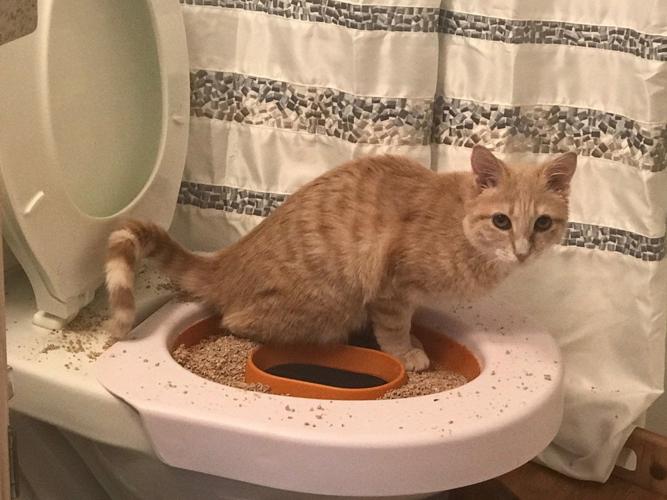The Risks of Disposing Cat Poop in Your Toilet - Precautionary Measures
The Risks of Disposing Cat Poop in Your Toilet - Precautionary Measures
Blog Article
We've found this post relating to Can You Flush Cat Poop Down The Toilet? listed below on the web and reckoned it made good sense to share it with you in this article.

Introduction
As feline proprietors, it's essential to bear in mind exactly how we deal with our feline buddies' waste. While it might appear practical to flush pet cat poop down the bathroom, this method can have harmful consequences for both the environment and human wellness.
Environmental Impact
Purging feline poop introduces harmful microorganisms and parasites right into the supply of water, positioning a significant risk to marine ecological communities. These contaminants can adversely affect marine life and concession water high quality.
Wellness Risks
Along with environmental problems, flushing feline waste can also pose wellness risks to human beings. Feline feces may contain Toxoplasma gondii, a parasite that can cause toxoplasmosis-- a potentially severe health problem, particularly for pregnant ladies and individuals with damaged immune systems.
Alternatives to Flushing
Thankfully, there are safer and extra accountable means to take care of feline poop. Take into consideration the complying with choices:
1. Scoop and Dispose in Trash
The most usual technique of disposing of feline poop is to scoop it right into a naturally degradable bag and toss it in the garbage. Make certain to use a specialized clutter inside story and dispose of the waste quickly.
2. Use Biodegradable Litter
Opt for eco-friendly cat trash made from products such as corn or wheat. These trashes are eco-friendly and can be securely gotten rid of in the garbage.
3. Bury in the Yard
If you have a lawn, think about burying pet cat waste in a marked area far from vegetable yards and water resources. Make sure to dig deep enough to avoid contamination of groundwater.
4. Mount a Pet Waste Disposal System
Purchase an animal waste disposal system specifically designed for feline waste. These systems use enzymes to break down the waste, lowering odor and ecological impact.
Final thought
Responsible pet ownership prolongs beyond supplying food and sanctuary-- it also includes appropriate waste administration. By refraining from purging pet cat poop down the toilet and going with different disposal approaches, we can lessen our environmental footprint and secure human health.
Why You Should Never Flush Cat Poop Down the Toilet
A rose by any other name might smell as sweet, but not all poop is created equal. Toilets, and our sewage systems, are designed for human excrement, not animal waste. It might seem like it couldn’t hurt to toss cat feces into the loo, but it’s not a good idea to flush cat poop in the toilet.
First and foremost, assuming your cat uses a litter box, any waste is going to have litter on it. And even the smallest amount of litter can wreak havoc on plumbing.
Over time, small amounts build up, filling up your septic system. Most litter sold today is clumping; it is made from a type of clay that hardens when it gets wet. Ever tried to scrape old clumps from the bottom of a litter box? You know just how cement-hard it can get!
Now imagine just a small clump of that stuck in your pipes. A simple de-clogger like Drano isn’t going to cut it. And that means it’s going to cost you big time to fix it.
Parasitic Contamination
Believe it or not, your healthy kitty may be harboring a nasty parasite. Only cats excrete Toxoplasma in their feces. Yet it rarely causes serious health issues in the cats that are infected. Most people will be fine too if infected. Only pregnant women and people with compromised immune systems are at risk. (If you’ve ever heard how women who are expecting are excused from litter cleaning duty, Toxoplasma is why.)
But other animals may have a problem if infected with the parasite. And human water treatment systems aren’t designed to handle it. As a result, the systems don’t remove the parasite before discharging wastewater into local waterways. Fish, shellfish, and other marine life — otters in particular — are susceptible to toxoplasma. If exposed, most will end up with brain damage and many will die.
Depending on the species of fish, they may end up on someone’s fish hook and, ultimately on someone’s dinner plate. If that someone has a chronic illness, they’re at risk.
Skip the Toilet Training
We know there are folks out there who like to toilet train their cats. And we give them props, it takes a lot of work. But thanks to the toxoplasma, it’s not a good idea.

I'm very enthusiastic about How to Dispose of Cat Poop and Litter Without Plastic Bags and I am hoping you liked the entry. Sharing is nice. Helping people is fun. I praise you for your time. Kindly come visit our site back soon.
This Resource Report this page